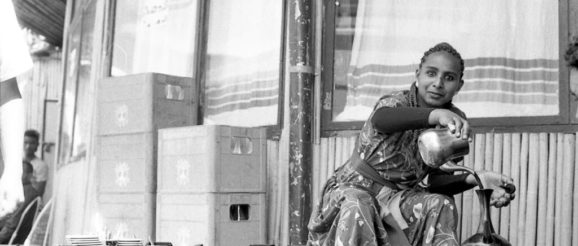The Universal Laws of Social Enterprise — Impact Boom | Social Impact Blog & Podcast | Global Changemaker Community | Social Innovation, Enterprise, Design

So spare a thought for the young social entrepreneur in, for example, Somalia, where there is no functional national government (the country is split into several non-cooperating regions), where warlordism remains prevalent and where even most international organisations fear to get involved.
I had the great privilege of teaching a fundraising and storytelling workshop to a group of young aspiring social entrepreneurs from Somalia during SEWF, who had been brought to the Forum by the United Nations Development Program. I also spent significant time with entrepreneurs from Rwanda and, of course, met many inspiring founders from Ethiopia.
These (mostly) young entrepreneurs are working on some incredibly challenging system issues, with minimal support, filling significant gaps in government service in an environment which lacks much of the infrastructure and investment we have in Australia, inadequate as it is.
But what struck me most meeting and spending time with these entrepreneurs wasn’t the differences, but the similarities.
I wasn’t sure what I had to share would resonate with emerging founders from Somalia, but it did. The founder of Acts of Gratitude from Rwanda, whose mission is to train 10,000 social entrepreneurs over the next five years, participated in our Good Hustle online social enterprise design course earlier this year, and I wasn’t sure the content would be meaningful for his context, but it was.
In fact, we have now partnered with Rwandan organisation Acts of Gratitude to adapt Good Hustle for their context, which is incredibly exciting for us. It’s our first country-level distribution partner for Good Hustle and points the way to a new franchise model for the program. The adaptation required is around pricing, naming and additional local information, not around the core elements of the program. I would not have assumed that our learnings from supporting people to design and launch social enterprises in Australia, New Zealand, North America and Europe would hold true for Rwanda, but they do.
I now believe these are universal laws of social entrepreneurship, equally relevant in Malawi as Melbourne, Botswana as Brisbane, Ethiopia as Epping. Don’t get me wrong, there are huge differences as well, in the size and shape of the market, in the level of government or international support, in the availability of investment and the sophistication of consumers. In the sheer scale of the challenge and the needs of the community.
But to be able to serve those needs effectively, every social enterprise must have five key things:
An impact model: You need a clear and compelling theory of change, which articulates how your project is delivering positive changes for your community or for the world;
A value proposition: To be a social enterprise, creating impact isn’t enough, you need to do so via a business model which delivers clear and understandable value for your customers;
A target market: In order to deliver that value you need to be clear on who it is for and why they will want it. Social entrepreneurs are often convinced their product is “for everyone”, but this is never the case, and if you don’t know specifically who it is for I worry that it will turn out to be for no one, despite your passion;
A go-to-market strategy: How are you going to introduce your target market to the value you offer? Which channels are relevant for you, and what story or pitch will help you capture their attention and inspire them to give you their time, their trust and their money?;
Personal resilience and self-care. The reason most social enterprises fail is because the founder burns out. The journey is long my friends, so you need to focus on what you need to survive that journey. What are the self-care routines and practices that will help maintain your energy, stay sane and keep going?
These are the five core modules we cover in our Good Hustle social enterprise design course, and what we teach people looking to crowdfund on StartSomeGood. We learned this formula from helping thousands of impact projects launch, and seeing what works and what doesn’t. It was further validated interviewing dozens of leading social entrepreneurs from around the world each year for our #StartingGood Virtual Summit (coming up again in March!).
So many entrepreneurs, driven by their passion to make an impact and conviction, launch too early. So many others launch too late, or not all, possessed by perfectionism or fear of failure, unable to take the leap into the market. Some bounce from one program to another, accelerator-hoping as a way to gain resources and create a sense of progress, but if you’re not in-market you’re not really moving forward, you’re stuck in preamble.
But to take that leap you need to know you’re ready. This means having a clear roadmap and formula for what it means to be launch-ready. Neither rushing to launch prematurely, without the clarity, credibility or community connections you need, nor holding back waiting for some divine signal that everything will work as intended.
The simple checklist above is that formula. If you can be clear on each of those elements, you are ready to go. If you’re not, we’d love to help you get there. Because one thing is clear: we need you!
There’s a lot of good that needs going, and creating a better future will take all of us.
So if you have an idea for a social enterprise or impact project which will serve your community we need to get that idea out of your head and into the world where it can make a difference.
This starts with knowing how. Nail the universal elements of social enterprise and you’ll be well on the way.
